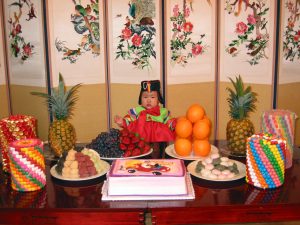Without wanting to be accused of being worse than Mussolini, I personally like how we calculate age in the West. You get born, on your first birthday you’re one, and then your age goes up on every birthday. I’ll be 40 on July 29th 2020, and by Jove I’ll be 39 until 23:59 on July 28th. But what about Korean age-reckoning?
In East Asia, it gets really complicated. Korean age-reckoning, in particular, is insane; people born a few months apart end up being two years apart. Mental, right? Let me explain.
When you are born, you’re already one year old. The nine months in mummy’s tummy, and I guess even the parental wooing and coitus are included to account for this. After this, your age goes up on each Lunar New Year (and not your actual birthday). Let’s say, for instance, that you were born on January 15th, and Lunar New Year falls on January 16th. This makes you one year old when you’re born, and two years old the day after.

Despite insisting on this frankly wacky age-reckoning method, Korea likes to further complicate things by using the Western method for legal purposes. The legal age of drinking and consent are calculated according to the Western way – so if you’re 18 according to the Lunar Calendar but 16 according the Gregorian one, you ain’t getting that whisky. Confused yet?
If this wasn’t complicated enough, all the Asian countries that use the Lunar Calendar give themselves two birthdays – one for each calendar. In the UK, you have to be the Queen to get two birthdays.
It does, however, make for an interesting point of conversation when you are speaking to your North Korean guides and rudely ask them how old they are. Are they using the Lunar Calendar or the real Gregorian one?
Play confusing guessing games with Korean age-reckoning yourself on a tour of North Korea!





